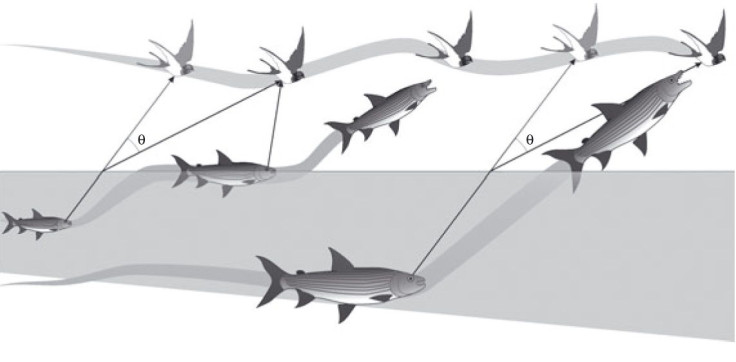Scientists Film African Tigerfish Preying On Birds In South Africa’s Schroda Dam

While it’s well established that aquatic animals such as sharks and certain bass prey on birds that are swimming or floating in water, a study has captured African tigerfish for the first time exhibiting such predatory behavior.
African tigerfish, or Hydrocynus vittatus, is a freshwater fish widely found in Africa and a team of scientists, from the Water Research Group at South Africa’s North-West University, have documented video evidence of the fish lunging out of water to catch barn swallows. Their findings, said to be the first confirmed record of freshwater fish preying on birds in flight, were published in the Journal of Fish Biology.
"The African tigerfish is one of the most amazing freshwater species in the world," said Nico Smit, co-author of the study, according to BBC. "It is a striking fish with beautiful markings on the body, bright red fins and vicious teeth."
The Schroda Dam, where the study recorded its findings is a small man-made lake in the Limpopo River catchment area in the Mapungubwe National Park.
The study, during a 15-day survey, found as many as 20 successful attempts by the fish on nabbing their prey, and also found that the fish deployed two specific methods of preying on the birds. One was to pursue the prey at surface level, or just under it, before lunging up to grab the target, while another method used by the fish involved direct aerial strikes initiated from deeper water.
According to the findings, the second method was more successful than the first, with one out of three attempts being successful, while the first method yielded a satisfactory result only once in seven tries.
The study speculates that the fish’s feeding behavior “may have been adopted out of necessity due to food availability limitations.”
“This feeding behaviour may increase the risk of the H. vittatus themselves being preyed upon by avian predators such as the African fish eagleHaliaeetus vocifer which are common in the area,” the study adds.
© Copyright IBTimes 2024. All rights reserved.












